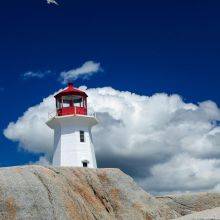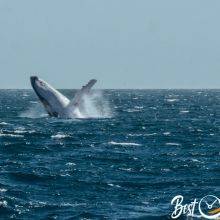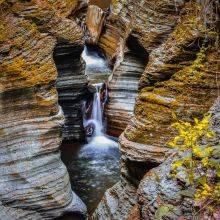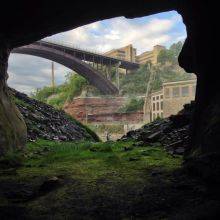When Is the Best Time
The Hopewell Rocks in the Bay of Fundy in New Brunswick were once created and formed by erosion (the sea, wind, and weather) which is now a threat to these unique sea stacks nicknamed the Flowerpots. Do you wish to visit the Hopewell Rocks, with the highest tide of up to 53 ft/ 16m?
Maybe you shouldn’t wait for too long. The iconic elephant rock collapsed in February 2016 during a heavy storm, and Hurricane Fiona destroyed another Flowerpot Rock in September 2022. After elephant rock collapsed, stones scattered on the ground, the beach was separated, and only a fraction of the 2 km long beach was accessible. However, some of the most impressive rocks are still left, over 20, and the scenery is simply spectacular.
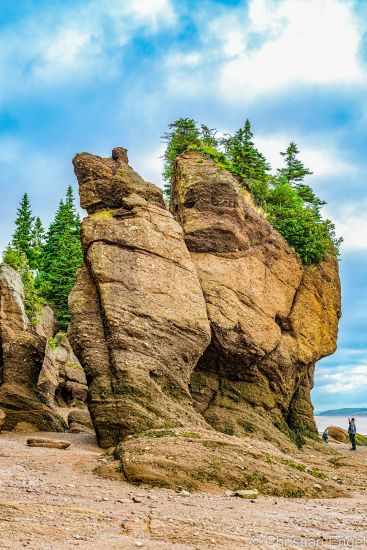
I will give you an overview of the best time, how much time you should spend, all you need to know about the tides, what to bring, where to download a map, and where to book your ticket online. Check out my Table of Content and jump to the headlines you are interested in.
Where Are the Hopewell Rocks?
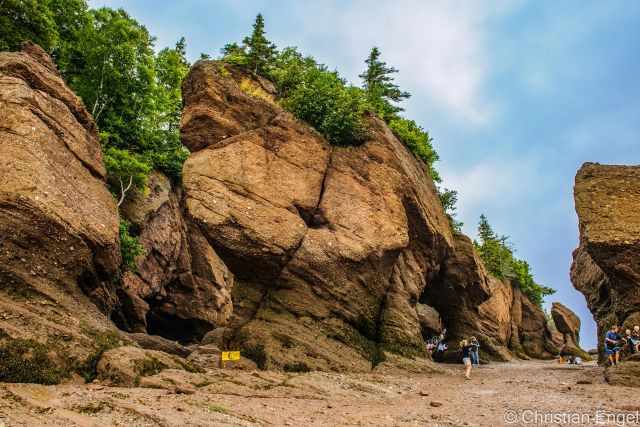
The Hopewell Rocks are located at the far end of the Bay of Fundy. These rocks are situated in the east of Canada, belonging to New Brunswick. The Bay of Fundy lies between New Brunswick and Nova Scotia in the Gulf of Maine, which indicates that it is not far from the US border. The closest and biggest city is Moncton, with a population of roughly 85.000. It is about 38 km from Moncton to the closest parking at the café of Hopewell Rocks. Google Maps directions
What is Special About the Hopewell Rocks?

The Hopewell Rocks in the Bay of Fundy are an incredible natural wonder constantly changing by the tides, and these tides are a phenomenon because they are the highest in the world, with a record of 56ft/ 17 m. You can imagine that such a height difference is not without risks for visitors. Please, read my detailed guide and have an awesome time there.
Hopewell Rocks Low Tide and High Tide
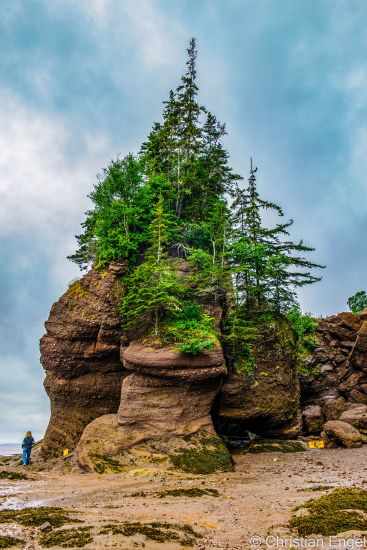
- If you wish to walk on the accessible ocean floor, come at low tide.
- If you want to get close to these sea stacks in a kayak, you must visit Hopewell Rocks at high tide.
Definitely check out the tides before you visit this unique place. Tide Times can be predicted up to two years in advance, but there isn't a website which is able to do so. The best I could find is the one from the Provincial Park itself for six months in advance - more below.
What Are the Months With the Highest Tides in 2025?
The highest and lowest tides vary a little each year but roughly occur in spring and fall, not in summer and winter.
The tides are exceptional
- at the beginning and end of March
- at September 9 and 10
- and October 7 until 9.
- Exact tide times for six months in advance
Continue reading to learn how the tides affect your visit.
Top Tip
Plan your visit to the stunning Hopewell Rocks and secure your stay close by! Accommodations near this incredible natural wonder fill up quickly, so be sure to book well in advance to stay as close as possible. Explore nearby hotels on booking.com for Hopewell Rocks through my website. Thank you for booking via my link—your support allows me to continue sharing valuable travel tips with you for free!
Spring Tide – King Tide
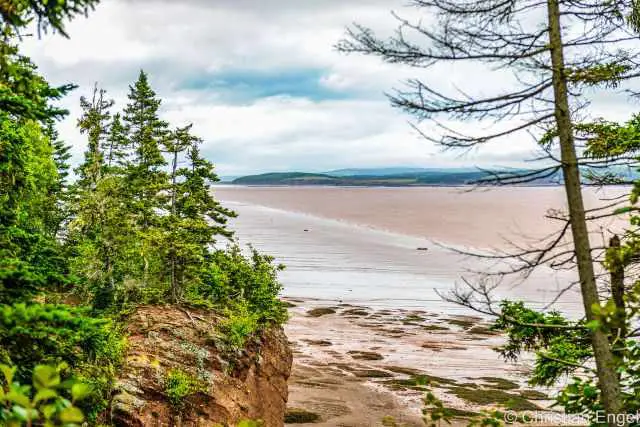
This phenomenon occurs each month at full and new moon when the tides are at their highest and lowest. The most extreme events occur roughly 6-8 times a year when the moon is closest to the earth. Only then can high tide reach records of 53 ft/16 m. In 2023 the highest tide occurs in
Tidal Bore – Highest Tide in the World
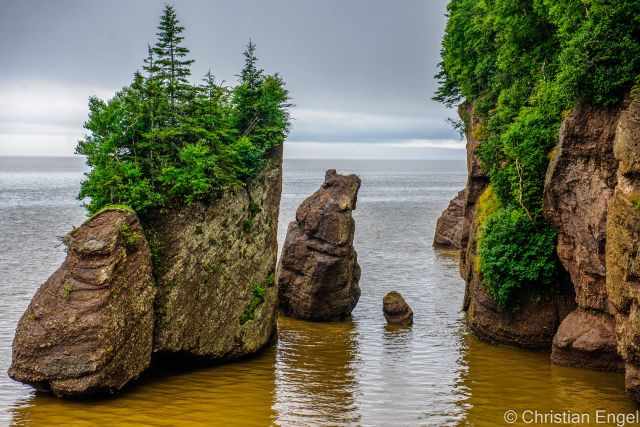
This rare-to-witness phenomenon occurs in a few places in the world only. A tidal bore is the wave of the incoming tide, which can be as high as 10 ft/3 m. The wave runs against the current of a river here at Hopewell Rocks, even two rivers. Because of its geographical location, the Bay of Fundy becomes narrower and shallower inland, and the flow of the sea is compromised, therefore rising so high. Another outstanding location to watch the tidal bore is Mount Saint Michel in France.
Where Do You Find the Highest Tides in the World?

The highest tides occur here in the Bay of Fundy; therefore, Hopewell Rocks Provincial Park in Canada is a unique place to watch the untamed ocean and the sheer power of mother nature.
High Tide vs Low Tide
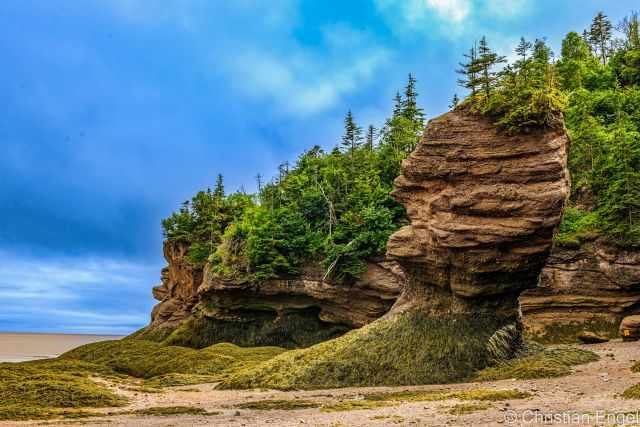
You can't really compare these tides because of this incredible difference. The fact is, if possible, you should see both events so that you really become aware of this enormous difference. If you are short on time, I would personally try to catch low tide and walk across the muddy seabed.
How Much Time Shall I Spend at Hopewell Rocks?
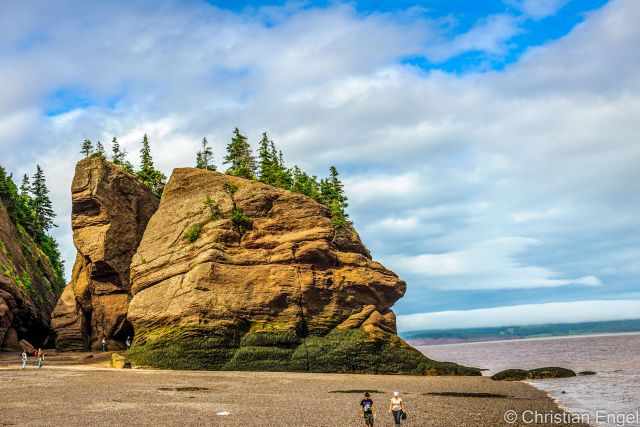
From my own experience, I highly recommend spending an entire day here. Walk on the ocean floor, around the flowerpot rocks, and afterwards watch the incoming and fast-flowing tide. It is amazing to witness how fast the tide rises and where you just walked two hours before is now the muddy sea. You can see both events in one day from spring to fall, but winter is not guaranteed due to the short daylight hours, and the park is officially closed. Tickets are valid for two consecutive days, another reason why you should take your time and soak in the astonishingly changing landscape.
Hopewell Rocks Kayaking
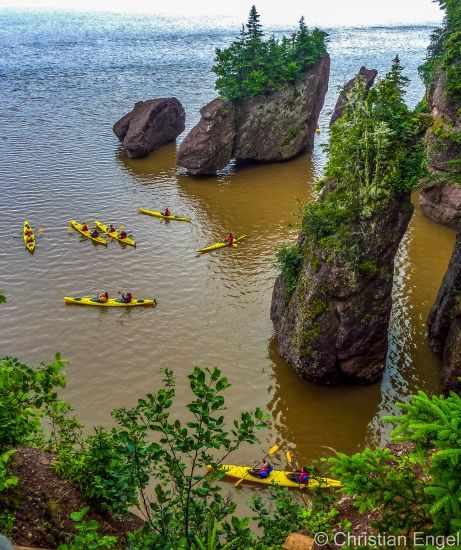
Kayaking is an outstanding experience and shouldn’t be missed. The higher the tide, the closer you get to the overgrown green tops which are looking out of the sea. I really like that you can’t get closer to the upper part of the flowerpot rocks than in a kayak.
The Best Time for Hopewell Rocks
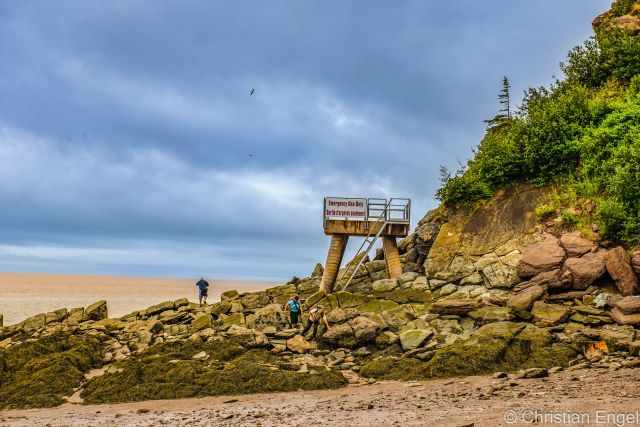
The best time for Hopewell Rocks depends on the tide times, which change daily. If you wish to walk on the ocean floor, you must arrive roughly 2 hours before low tide. If you want to experience Hopewell Rocks without the crowds, come early or late in the day and watch the sunset. Regarding safety, temperatures and experiencing both tides in one day, the official opening dates from mid-May to the beginning of October are the best times.
Honestly, it is more about when is high and low tide and how much time to spend at these unique rocks. Of course, it is much quieter in the morning and evening but first, check the tides so that you do not miss out on the low tide.
Avoiding Tourist Crowds
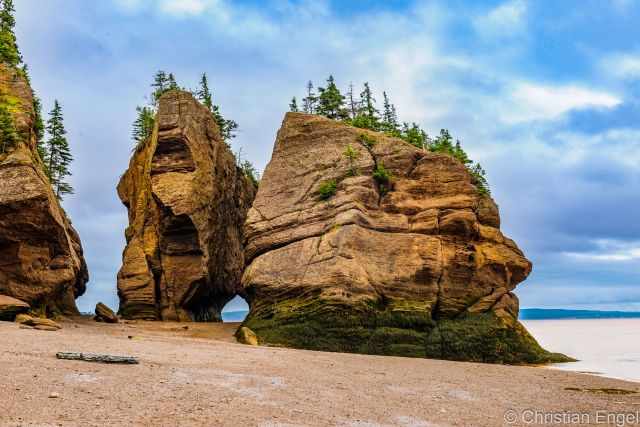
Of course, summer, July and August are the busiest time of the year but also the warmest, with the longest opening hours from 8 am until 8 pm. If you wish to visit Hopewell Rocks most important is to check out the tides and pick out what you prefer. IMO low tide is a Must-Visit time and shouldn’t be missed. The visitors are spread over the entire beach and viewing points, so you won’t bump into others all the time, and you are able to enjoy this unique place despite the crowds.
Opening Hours Hopewell Rocks
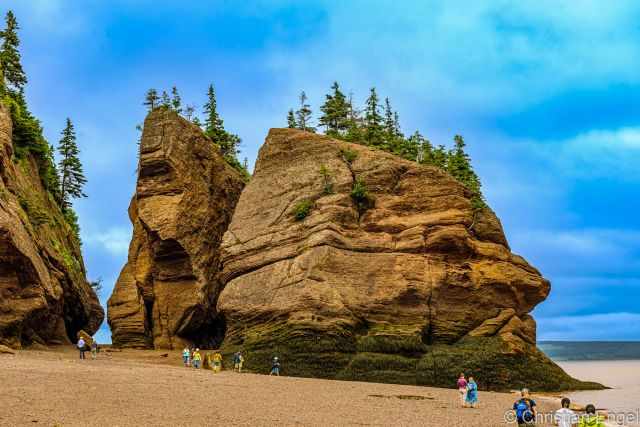
Please keep in mind that the park is officially open from about mid-May to mid-October for a good reason because of the harsh winter conditions and the higher risk of falling rocks. All safety measures and cables are removed. If you visit Hopewell Rocks outside of the official opening hours, it is at your own risk!
Can You Go to Hopewell Rocks After Hours and Off-Season?

Yes, you can visit Hopewell Rocks after hours, also in the evening. Some visitors come to watch the sunset and the night sky. However, bring a torch or headlamp so that you are able to find the path. Keep in mind there is no ranger or park staff after hours. You can visit Hopewell Rocks off-season in the winter, but there aren't any safety measures. If you do so, it is at your own risk! The pro is that this is the quietest time of the year but also cold.
Entrance Fee and Tickets
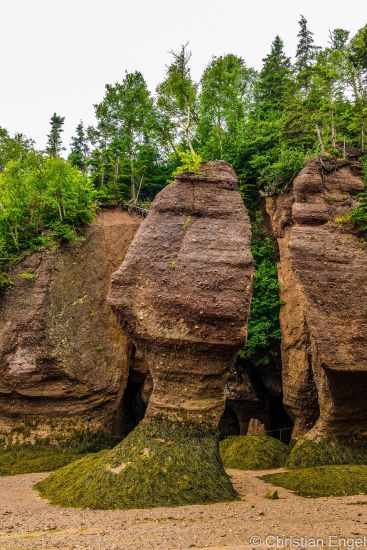
The individual prices are displayed when booking the ticket online. There is an extra ticket for families with two children, which is fairly priced. Here, you can order your tickets online; the price plus a $3 transaction fee. However, this gives you more flexibility and is time-saving during peak season. The ticket is valid for two days, and you can definitely visit Hopewell Rocks at both tides.
Hopewell Rocks 7 Must-Know and Map
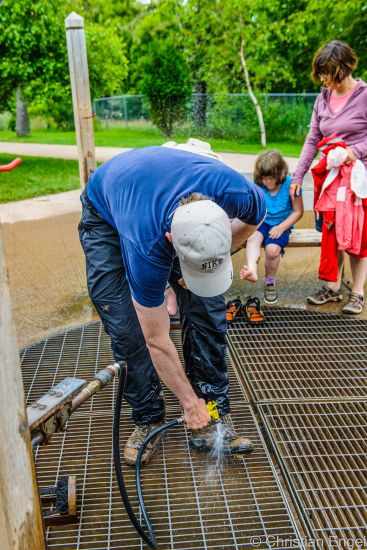
- Shoes: Wear Teva (in summer), Rubber Boots or Water Shoes and warm Merino socks to walk safely and warmly on the seabed. Because of the many sharp-edged stones and rocks, you should not wear flip-flops on the ocean floor and definitely do not walk barefoot!
- Map Download the map of Hopewell Rocks for your visit to know where to find the three access points, parking, restrooms, visitor centre, where you can see all the flowerpot rocks and their given names.
- Two staircases with a hundred steps lead down to the ocean floor, and there is also a ramp to the north to get down and closer by wheelchair, but I think you can't get further. You are rather stuck on the muddy sea floor.
- Dogs are allowed at Hopewell Rocks as long as they are leashed, and you clean up after them. Don’t leave their poo at the beach, and others walk in.
- Shuttle Bus: If you can't walk far, a small shuttle bus for $2 from the Interpretive Centre to the stairs is available.
- Restrooms are available at the parking lot, stairs, along the walking path, and Interpretive Centre.
- Parking: There is a huge parking lot at the Interpretive Centre and a smaller one at North Beach. A third additional parking for campers and caravans is available. Shoulder parking outside of the park is prohibited.
Hopewell Rocks – New Brunswick – Weather
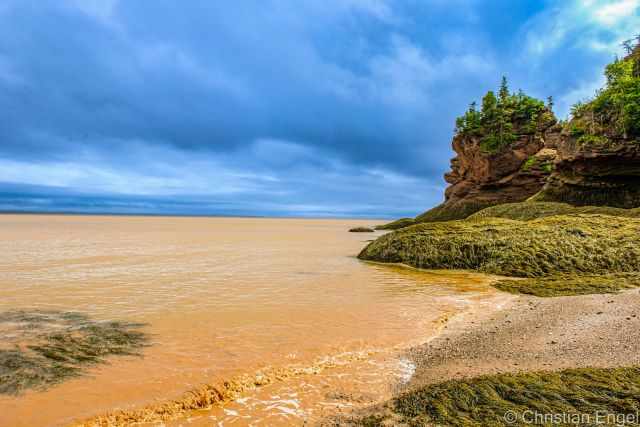
Spring (April-mid-June)

April is still cold, with day temps below 10°C/50°F. May tends to warm up, but it is still cold, and a warm jacket is needed. Also, June temperatures are still below 20°C/68°F.
Summer (mid-June-August)
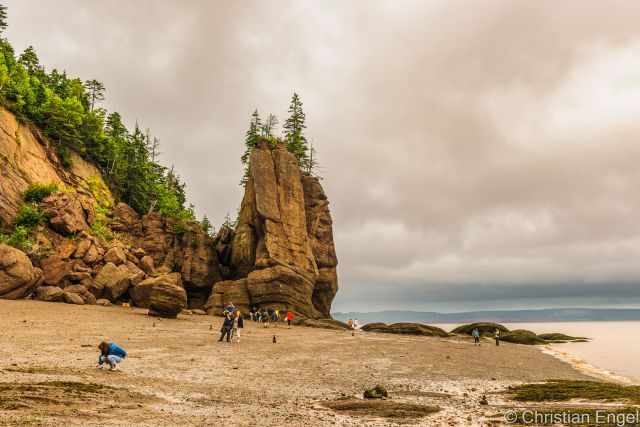
Summer is a pleasant time, and these are the driest months; nevertheless, a wind jacket may be needed, and it cools down at night to around 12°C/54°F.
Fall (September-October)
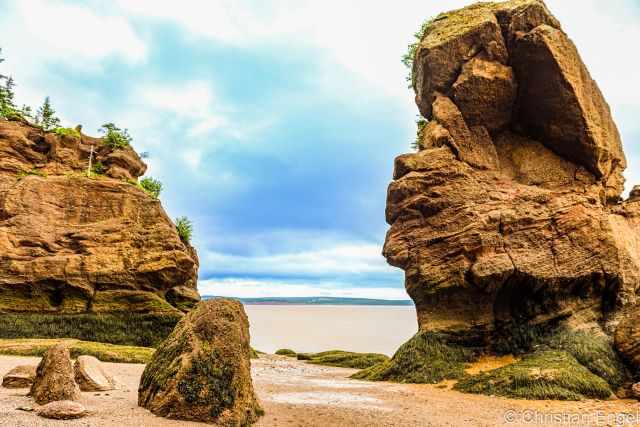
September is a wonderful month for the Hopewell Rocks. It is still nice, and it is less busy after the summer school holidays. The fall foliage in October is fantastic, but day temps drop on average to 13°C/55°F.
Winter (November-March) - Off Season

In winter, you can’t always witness low and high tides in one day because of the shorter daylight hours. Hopewell Rocks are quiet during the winter but remember that there are neither rangers nor safety measures. Don’t get too close to the rocks, caves and shore when walking through the seabed at low tide. There is always a risk for rockslides.
Most precipitation occurs in the winter. Days are chilly and expect sub-zero temperatures at night.
Best Months to Visit
Location and Tips

Hopewell Rocks are a dramatic coastline in New Brunswick. Are you wondering about the brown, muddy colour of the sea? There are two reasons for this; first, it comes from the rivers, which flow through the soft red sandstone that easily erodes and second, from the incoming tide, sediments are transported inland. The flowerpot rocks are made of the same reddish-brown clay as the ocean floor you are walking on at low tide.
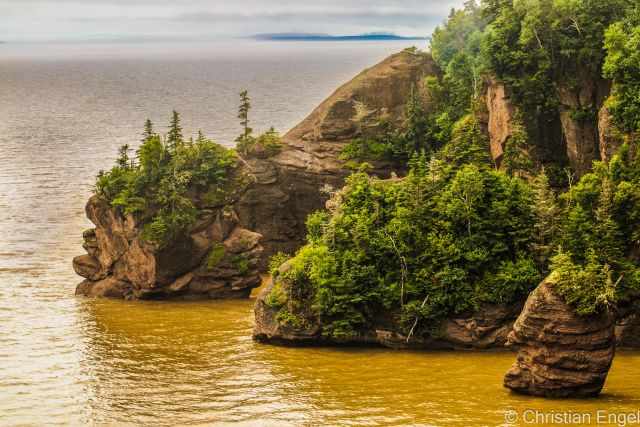
All pictures were taken by my friend Chris. If you want to obtain the usage right for some images, contact me, but we will take action against picture theft.







